

 |
BEIJING, Aug. 3 -- China's national strength grows amid skepticism. Beijing's bid for hosting the 2022 Winter Olympic Games is a latest example.
Skepticism continues though the International Olympic Committee (IOC) has endorsed Beijing's bid. While some doubts deserve serious consideration, those habitual China skeptics should answer at least one question: for the Beijing event, why can't you take it as a sweet grape?
Their first doubt is that Beijing and its co-host city Zhangjiakou are short of snow. It's true that snow is the first and foremost thing for a Winter Games, but don't forget artificial snow.
Beijing's bidding committee has assured the world that snow-making facilities can satisfy the demand for the event. If critics don't believe in Beijing, they should wait and see if the IOC's choice lest them down.
A concern related to artificial snow is the consumption of water, which Beijing is short of. Artificial snow will consume only one percent of the local water supply, far less than the so-called "environmental disaster" claimed by some critics.
It's true that smog is a serious issue, but the government is tackling the problem. Now with the successful bid, Beijing has vowed to treat air pollution, cutting PM2.5 by 20 percent by 2017, and by 45 percent in 2022. The event will push Beijing to clean its sky. In another word, more blue skies might be the most important legacy of the event.
Change is already taking place in Chongli, a county in Zhangjiakou where some of the skiing events will be held. Polluting mines are being closed, a specific measure to clear smog.
The county is also embracing more tourists and skiing fans. It is estimated that China has about one million skiing fans. Chongli's resorts attract skiers from neighboring Beijing, Tianjin and other areas in north China.
The Olympic Games is expected to further bolster local tourism and the skiing industry. Zhangjiakou expects the event to generate 350 billion yuan of investment and create 200,000 jobs.
Infrastructure investment and job opportunities are believed to be able to drive local economic development in Zhangjiakou and its neighboring areas, part of a poverty belt around Beijing.
Preparations for the Olympics will accelerate the economic integration of this area into Beijing and Tianjin, its two developed neighboring municipalities. A high-speed railway under construction linking Beijing and Zhangjiakou will cut the travel time from the capital to Chongli to around 50 minutes.
It's true that not all Beijingers or not all Chinese back Beijing's bid for the Winter Games, but it's at least equally true that many Beijingers and many Chinese people support it. Western media critics should not neglect the other half.
It's needless to say that Beijing has many problems to resolve before a successful winter games, but has seven years to ready itself.
Critics also have the same time to wait and see, long enough for them to look back at their similar doubts, skepticism and even accusations when Beijing bid and prepared for the 2008 Summer Games.
Beijing and China are quite different now compared to the years when it bid for the 2008 event, but the critics seem to have remained unchanged. One truth for them to learn: those who get the grapes know quite well they are sweet. Sour-grapes are for the disappointed fox.
Day|Week

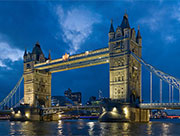 Top 10 international destinations for Chinese millionaires
Top 10 international destinations for Chinese millionaires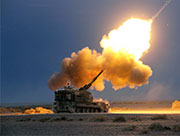 New-type self-propelled gun fires in drill
New-type self-propelled gun fires in drill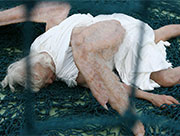 Chinese artists create 'fall of an angel'
Chinese artists create 'fall of an angel'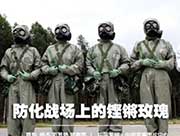 PLA's only woman CBRN emergence rescue team
PLA's only woman CBRN emergence rescue team Stunning! Gorgeous girls practice yoga on 2,000-meter-high cliff
Stunning! Gorgeous girls practice yoga on 2,000-meter-high cliff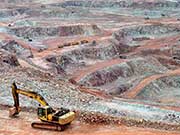 A glimpse of China's Zijinshan gold & copper mine
A glimpse of China's Zijinshan gold & copper mine Hot figure show in SW China
Hot figure show in SW China Evolution of Chinese beauties in a century
Evolution of Chinese beauties in a century